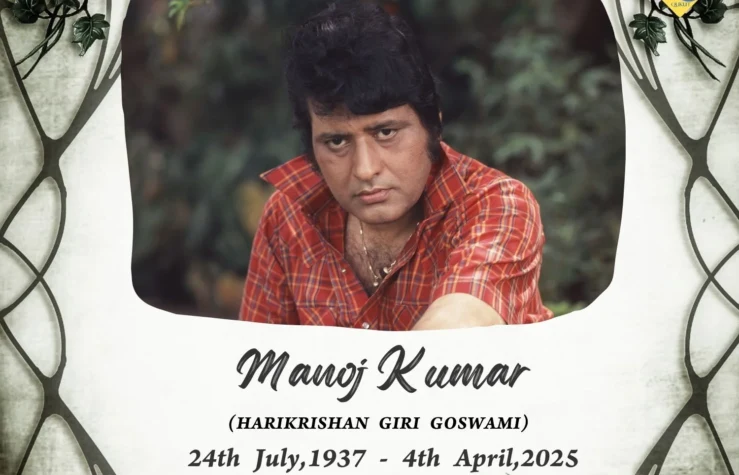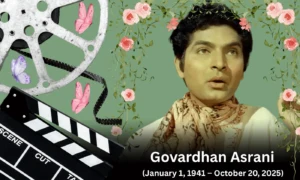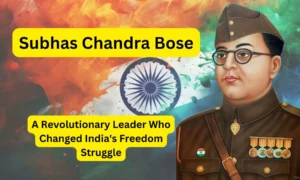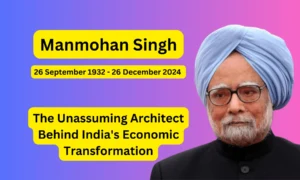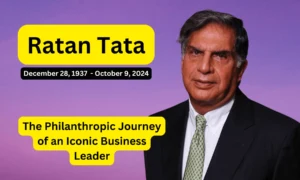Introduction
Manoj Kumar, a towering figure in Indian cinema, left an indelible mark through his roles as an actor, director, and patriot. Known affectionately as “Bharat Kumar” for his patriotic fervor, his life story weaves together personal resilience, cinematic brilliance, and a deep connection to India’s cultural and social fabric. This in-depth analysis explores his early struggles, meteoric rise, landmark achievements, accolades, political forays, controversies, and enduring legacy, drawing from diverse sources to offer a holistic portrait of his multifaceted journey.
Early Life and Background
Childhood in Pre-Partition India
Manoj Kumar was born Harikrishna Giri Goswami on July 24, 1937, in Abbottabad, a city then part of British India and now in Pakistan. Growing up in a middle-class family, his early years were marked by the simplicity and challenges of pre-independence life. Abbottabad, nestled in the Himalayan foothills, provided a serene backdrop to his formative years, though this tranquility would soon be disrupted by historical upheaval.
Impact of the 1947 Partition
The partition of India in 1947 was a defining moment for Manoj Kumar and his family. At the age of 10, he witnessed the chaos and displacement as millions crossed newly drawn borders. His family migrated from Abbottabad to Delhi, leaving behind their roots in search of safety and stability. This experience of loss and adaptation profoundly influenced his worldview, later reflected in the themes of unity and sacrifice that permeated his films. Delhi, with its bustling streets and rich history, became the crucible where his dreams began to take shape.
Early Struggles and Inspiration
In Delhi, Manoj Kumar faced the realities of a refugee family striving to rebuild. To contribute to the household, he took up work as a taxi driver—a job that exposed him to the diverse tapestry of Indian society and honed his understanding of human struggles. Amid these challenges, he found solace and inspiration in cinema, particularly in the works of Dilip Kumar, a Bollywood legend whose emotive performances captivated him. Inspired by a character from the 1949 film Shabnam, he adopted the screen name “Manoj Kumar,” a decision that symbolized his ambition to emulate his idol while carving his own path.
Early Career Beginnings
Debut in Bollywood
Manoj Kumar’s cinematic odyssey commenced in 1957 with Fashion, a modest film that introduced him to the world of Bollywood. While it did not catapult him to instant fame, it served as a stepping stone, allowing him to hone his craft and gain a foothold in an industry teeming with talent. His debut marked the beginning of a journey that would see him evolve from a newcomer to a household name.
Breakthrough Roles and Versatility
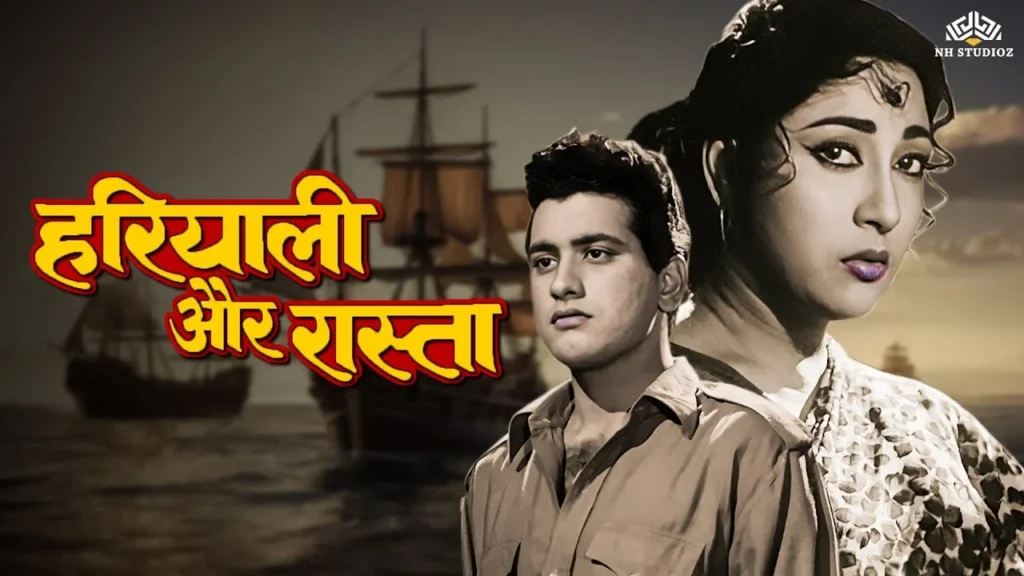
The early 1960s brought Manoj Kumar his first taste of recognition. In 1962, Hariyali Aur Raasta, a romantic drama, showcased his ability to portray tender emotions, earning him critical and audience appreciation. Two years later, Woh Kaun Thi (1964), a psychological thriller opposite Sadhana, revealed his range as an actor. Playing a man haunted by mystery and intrigue, he captivated viewers, proving he could excel in genres beyond romance. These films established him as a versatile performer, capable of adapting to the demands of diverse narratives.
Key Early Films
| Year | Film | Role/Notes | Significance |
| 1957 | Fashion | Debut film | Marked his entry into Bollywood |
| 1962 | Hariyali Aur Raasta | Romantic lead | Breakthrough role, highlighted charm |
| 1964 | Woh Kaun Thi | Thriller, opposite Sadhana | Gained widespread fame, showcased depth |
Foundation for Patriotic Persona
These early successes were more than commercial triumphs; they laid the groundwork for the patriotic roles that would define his career. His ability to connect with audiences through relatable characters and compelling storytelling hinted at the larger-than-life persona he would soon embody, reflecting India’s post-independence aspirations and struggles.
Rise to Stardom and Film Successes
Emergence as a Patriotic Icon
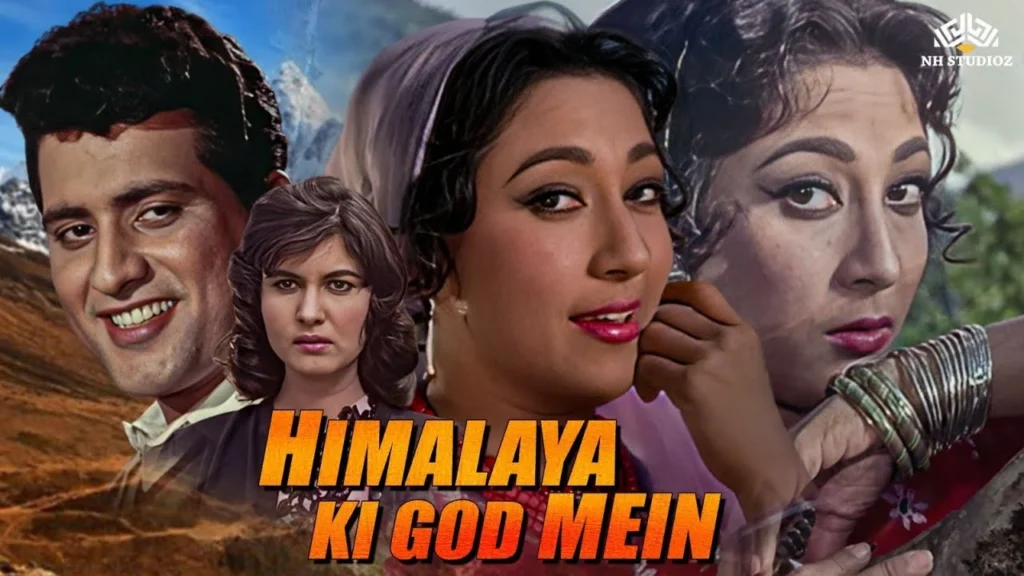
The mid-1960s ushered in Manoj Kumar’s golden era, as he transitioned from a versatile actor to a symbol of national pride. Films like Himalay Ki God Mein (1965) and Shaheed (1965) marked his emergence as a star with a purpose. Himalay Ki God Mein, a blockbuster earning Rs 2.25 crore, blended romance with patriotism, while Shaheed, a biographical drama about revolutionary Bhagat Singh, resonated with a nation still forging its identity. These films earned him the nickname “Bharat Kumar,” a title that encapsulated his commitment to India’s ethos.
Blockbuster Era of the 1960s and 1970s
Manoj Kumar’s career peaked with a string of blockbusters that dominated the box office and cultural consciousness. Upkar (1967), inspired by the slogan “Jai Jawan Jai Kisan,” became a cultural phenomenon, earning Rs 5.25 crore and cementing his status as a patriotic filmmaker. The 1970s saw continued success with films like Patthar Ke Sanam (1967), Neel Kamal (1968), and Roti Kapada Aur Makaan (1974), the latter addressing social issues like poverty and housing, reportedly fetching him Rs 8 lakhs—a staggering sum reflecting his market dominance. His hat-trick of blockbusters, including Sanyasi (1975) and Dus Numbri (1976) at Rs 14.71 crore, showcased his unparalleled consistency.
Major Film Successes
| Year | Film | Notes | Approx. Box Office (Rs crore, India) | Approx. Remuneration (Rs lakhs) |
| 1965 | Himalay Ki God Mein | Blockbuster, patriotic theme | 2.25 | Not specified |
| 1967 | Upkar | Earned “Bharat Kumar” title | 5.25 | Not specified |
| 1974 | Roti Kapada Aur Makaan | Huge blockbuster, social issues | Not specified | 8 |
| 1975 | Sanyasi | Superhit | Not specified | Not specified |
| 1976 | Dus Numbri | Part of 3 back-to-back blockbusters | 14.71 | 7 |
Directorial Triumphs
Manoj Kumar’s talents extended beyond acting into direction, where he crafted cinematic epics like Purab Aur Paschim (1970), which explored the clash of Eastern and Western values, and Kranti (1981), a sprawling tale of India’s freedom struggle. Kranti was a monumental success, grossing Rs 10 crore in India and Rs 16 crore worldwide, making it the biggest patriotic hit of its time. These directorial ventures underscored his ability to blend entertainment with messages of unity and heritage, amplifying his influence as a storyteller.
Social Commentary in Cinema
What set Manoj Kumar apart was his knack for weaving social commentary into mainstream cinema. Whether addressing rural upliftment in Upkar, economic disparity in Roti Kapada Aur Makaan, or cultural identity in Purab Aur Paschim, his films transcended mere entertainment, serving as mirrors to India’s evolving society. This fusion of art and advocacy elevated his stature, making him a voice for the common man.
Awards and Recognition
National Honors
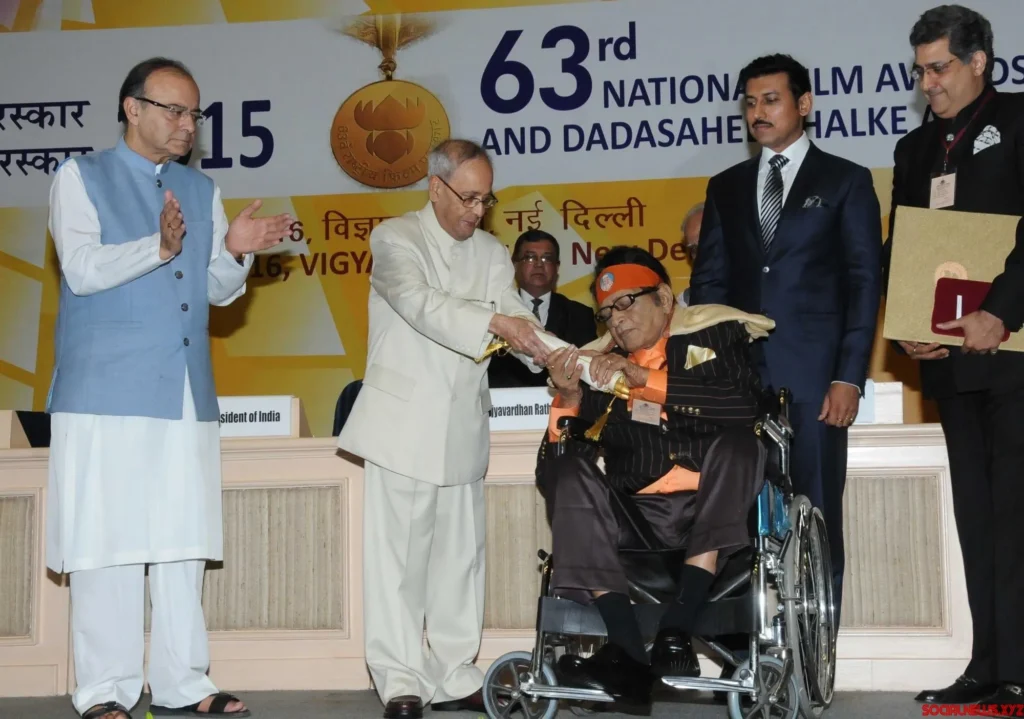
Manoj Kumar’s contributions to Indian cinema were celebrated with some of the nation’s highest honors. In 1992, he received the Padma Shri, acknowledging his artistic and cultural impact. In 2015, at the 63rd National Film Awards, he was bestowed the Dadasaheb Phalke Award, India’s most prestigious cinematic accolade, recognizing his lifetime achievement in shaping Bollywood’s patriotic narrative.
Filmfare and Industry Accolades
His trophy cabinet also included three Filmfare Awards: Best Actor for Be-Imaan (1972) and Roti Kapada Aur Makaan (1974), and Best Director for Roti Kapada Aur Makaan (1975). The Bengal Film Journalists’ Association Award in 1967 further highlighted his early acclaim, reflecting his broad appeal across India’s cinematic landscape.
Unique Tributes
Beyond traditional awards, Manoj Kumar received distinctive honors. In 2008, the Madhya Pradesh government established a Rs 100,000 award in his name and recommended him for the Bharat Ratna, India’s highest civilian honor—a testament to his national significance. In 2011, the Shri Saibaba Sansthan Trust in Shirdi renamed Pimpalwadi Road as “Manojkumar Goswami Road,” celebrating his spiritual devotion to Shri Sai Baba, a lesser-known facet of his persona that endeared him to devotees.
Political Involvement and Controversies
Political Alignment
Manoj Kumar’s patriotic screen image found a real-world echo when he joined the Bharatiya Janata Party (BJP) in 2004. This move, widely covered by media outlets, aligned with his nationalist ethos and allowed him to extend his influence into the political sphere. His association with the BJP reinforced his public identity as a figure committed to India’s unity and progress.
Defamation Lawsuit
His later years were marred by controversy when, in 2023, he filed a defamation lawsuit against Shah Rukh Khan, seeking Rs 100 crore in compensation. The legal battle stemmed from remarks made during a film promotion, which Manoj Kumar deemed offensive. The case, which garnered significant media scrutiny, highlighted his sensitivity to his legacy and added a contentious chapter to his otherwise illustrious career, pitting two Bollywood giants against each other in a public showdown.
Legacy and Recent Developments
Final Days and Passing
Manoj Kumar’s life came to a close on April 4, 2025, at the age of 87, in Mumbai’s Kokilaben Dhirubai Ambani Hospital. He succumbed to chronic heart-related complications and decompensated liver cirrhosis, conditions that had plagued his health in his final years. His passing marked the end of an era, leaving behind a void in Indian cinema and a legacy cherished by millions.
Tributes from Peers and Leaders
The announcement of his passing unleashed a wave of heartfelt tributes. Akshay Kumar, a prominent figure in patriotic filmmaking, took to X to share, “As a child, I absorbed from him the unmatched power of devotion and pride for our nation,” a testament to Manoj Kumar’s profound impact on emerging talents.
On the same platform, Prime Minister Narendra Modi conveyed his sorrow, writing, “I am deeply moved by the loss of the revered actor and director Shri Manoj Kumar Ji. A true luminary of Indian cinema, he was celebrated for his fervent patriotism, vividly portrayed through his movies. His creations stirred a deep sense of national honor and will keep motivating future generations. My condolences go out to his loved ones and countless fans. Om Shanti.” These reflections affirmed his towering presence as a cultural beacon.
Enduring Cinematic Impact
Manoj Kumar’s legacy is etched in films like Do Badan, Gumnam, and Kranti, which continue to captivate audiences. Box Office India archives note his consistent presence among top actors from 1967 to 1976, a testament to his commercial clout. Outlook India listed him among 75 Bollywood actors who conquered hearts since 1947, affirming his timeless appeal. His ability to blend entertainment with patriotism ensured his works remained relevant, inspiring filmmakers to explore India’s identity through cinema.
Cultural and Historical Significance
Beyond box office numbers, Manoj Kumar’s films served as historical markers, capturing the zeitgeist of post-independence India. They addressed pressing issues—rural development, freedom struggles, and social equity—while fostering a sense of pride and unity. His influence extended to the lexicon of Indian cinema, with “Bharat Kumar” becoming synonymous with patriotic storytelling, a legacy that endures in academic studies, retrospectives, and fan appreciation.
Conclusion
Manoj Kumar’s biography is a saga of triumph over adversity, artistic innovation, and unwavering patriotism. From driving a taxi in Delhi to directing cinematic epics, his journey reflects the aspirations of a nation finding its voice. His passing on April 4, 2025, closed a remarkable chapter, but his contributions—spanning blockbusters, awards, and a cultural imprint—ensure his immortality in Indian cinema. As an actor, director, and public figure, Manoj Kumar not only entertained but also educated and inspired, leaving behind a legacy that will resonate for generations to come.

